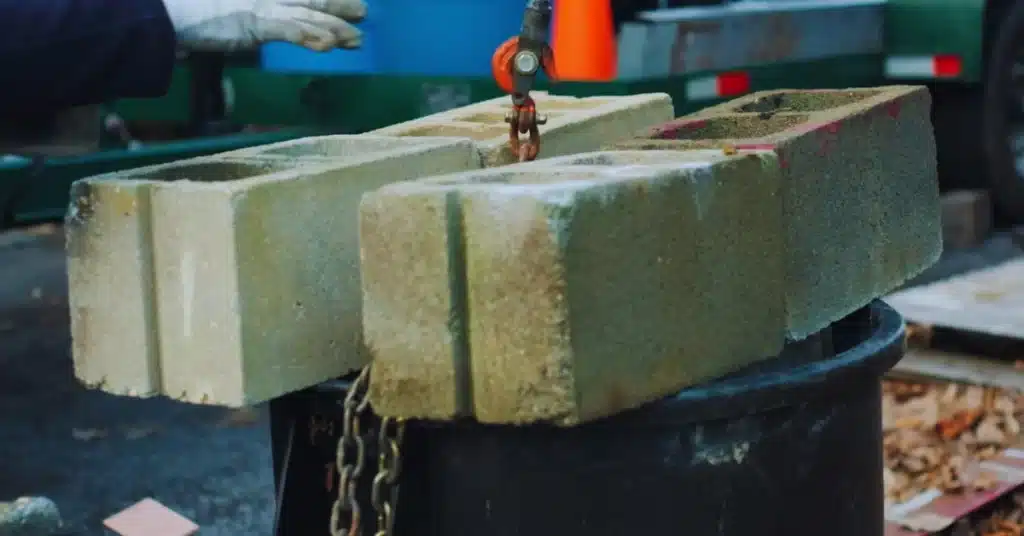How much weight can JB Weld hold? Have you ever wondered about this when buying or using any JB Weld adhesives?
Well, I bet you have.
This is one of the most common questions that can arise in any user’s mind when they are bonding or repairing using any JB Weld adhesives.
If this crossed your mind ever, go through my article below. I have talked about how much weight JB Weld can hold so that you know the weight limit and act accordingly.
Read More: How Strong Is JB Weld?
How Much Weight Can JB Weld Hold?
Before finding out how much weight JB Weld can hold, first learn about psi. Psi (pound per square inch) is important because it determines how much weight an adhesive can withstand.
Now, if you are wondering how much weight JB Weld can hold, it has a tensile strength of 5020 psi and, hence, can hold 5020 pounds of weight per square inch of materials.
How Much Weight Can JB Weld Hold Per Square Foot?
JB Weld adhesive has a tensile strength of 5020 psi, which means that it can hold 5020 pounds per square inch.
However, when it comes to how much weight JB Weld can hold per square foot, the calculation might be a bit difficult.
To find out pounds per square foot, first, you need to find the value of square foot into square inches. For your convenience, 12 square inches make a square foot.
Therefore, 5020 psi x 12 square inches = 60,240 psi per square foot.
This means that JB Weld can hold 60,240 psi per square foot.

How Much Weight Can JB Weld Steel Stick Hold?
JB Weld Steel Stick is a steel-reinforced, non-rusting epoxy putty that can repair or rebuild metal surfaces quickly and efficiently. Even though it has “steel” in its name, this adhesive works on other metals too.
It has a tensile strength of 4000 psi and, therefore, can hold 4000 pounds per square inch of material.
How Much Weight Can JB Weld Original Hold?
JB Weld Original is the most popular and widely used adhesive from the brand. This cold-weld two-part epoxy system provides a strong, lasting bond between materials and can be used on a wide range of surfaces.
It has a tensile strength of 5020 psi, which means that this adhesive can hold 5020 pounds per square inch.
How Much Weight Can JB Kwik Weld Hold?
JB Kwik Weld is the fast-setting version of the JB Weld Original. Even though this two-part epoxy cold weld system works as well as the Original, when it comes to strength or how much Kwik Weld can hold, there is a vast difference.
JB Kwik Weld has a tensile strength of 3127 psi, meaning that it will hold 3127 pounds of weight per square inch.
How Much Weight Can JB Marine Weld Hold?
JB Marine Weld is a specially formulated two-part epoxy cold weld system that provides a strong bond and works on a number of surfaces.
Just like the JB Weld Original, this adhesive has a tensile strength of 5020 psi and can hold 5020 pounds of weight per square inch of materials.
Read More: How Does JB Weld Work?
Is J-B Weld load-bearing?
J-B Weld is a strong adhesive that can withstand a variety of stresses and loads, but whether it is suitable for load-bearing applications depends on several factors:
Type of J-B Weld Product: J-B Weld offers different products for various purposes, and their load-bearing capabilities can vary.
Some J-B Weld products are formulated for heavy-duty applications and may be suitable for load-bearing purposes, while others are intended for lighter or non-structural applications.
Surface Preparation: The effectiveness of J-B Weld in load-bearing situations also depends on the quality of surface preparation.
Properly cleaning, roughening, and degreasing the surfaces to be bonded are essential for achieving a strong bond.
Material Compatibility: J-B Weld is commonly used for bonding metals, but its performance can differ depending on the types of materials being joined. It’s important to choose the right J-B Weld product for the specific materials you’re working with.
Design and Stress Considerations: When considering a J-B Weld for load-bearing applications, you must assess the type and magnitude of the loads involved, as well as the design of the bonded joint.
In some cases, mechanical fasteners like screws or bolts may still be necessary for added strength.
Testing and Certification: For critical load-bearing applications, it is advisable to consult with the manufacturer, conduct load testing, or seek guidance from a structural engineer to ensure that the J-B Weld bond meets the required load-bearing standards and safety requirements.
Last Opinion
Now that you know how much weight different JB Weld adhesives can hold, I am sure that you will act accordingly when working with these adhesives.
As each of these glues has a different tensile strength, they won’t hold the same weight. Keep this in mind, and I am sure that you can avoid a lot of mishaps.

